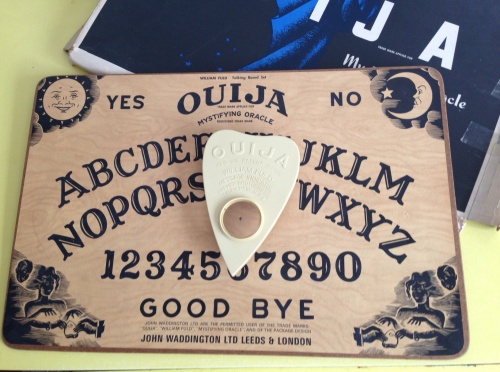It’s the best fortnight of the year! Well, for me anyway, as my birthday, Halloween and Bonfire Night – clearly the coolest of all annual celebrations – come within a few days of each other. My birthday week was full of treats, including trips to Frieze art fair and a Peruvian restaurant, the Anna Calvi album and new boots. Tomorrow night it’s the Poetry Library’s 60th birthday reading which I’m really looking forward to as it features three poets I love but have never seen read – Warsan Shire, Jen Hadfield and Brenda Shaughnessy (I believe there are still tickets).
And then this weekend I’m throwing a birthday/Guy Fawkes/Halloween party for a few friends and their children. On the Halloween front, I’ve brought Gruff a spooky costume, and once the children are in bed am planning to try out the Ouija Board I bought this summer at a car-boot sale. Am very intrigued to see if anything actually happens (there was a good article about the psychology behind ouija boards in The Guardian last week).
Then I’ve also bought a selection of rockets from Lidl, we’re piling up firewood in the garden and I’m cooking proper bonfire night food. Londoners seem happy to settle for hotdogs and baked potatoes, but as a Boltonian I am of course talking about black peas, otherwise known as carlin peas, cooked mushy and served with lots of malt vinegar (I struggled to find them, and had to get them online in the end). There will also be a dense gingerbread called Parkin, and treacle toffee wrapped in greaseproof squares, made to the same faded, magazine recipe my mum used to use:
(obviously, I don’t have a small Swiss roll tin, but otherwise it sounds achievable).
My parents made my childhood very magical with all their annual traditions and rituals, so looking forward to my own son seeing his first fireworks. Hope you enjoy these dark nights too.




